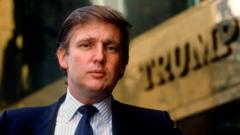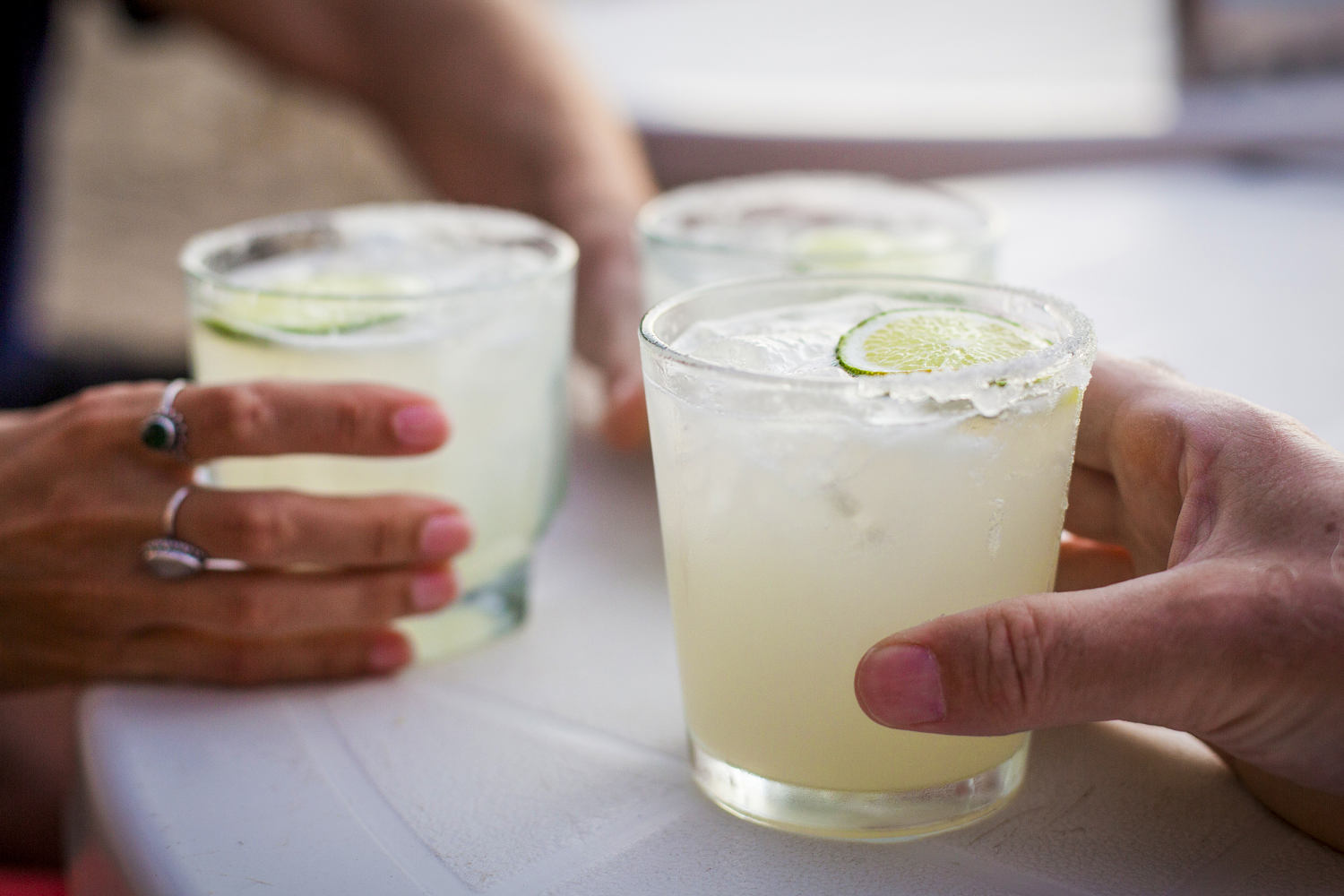Tariffs on Japan would be a costly mistake

In 1987, a prominent New York businessman took out a full-page newspaper ad warning that Japan was “taking advantage” of the U.S., decrying the massive trade deficit between the two countries.
Earlier this month, that same businessman, now President Donald Trump, once again took aim at the U.S.-Japan trade deficit. In his meeting with Japanese Prime Minister Shigeru Ishiba, Trump’s complaints about the trade deficit ended with a costly threat of tariffs.
In the 1980s, Japan’s booming economy was widely considered to be on a path to becoming America’s foremost economic rival. By 1992, the trade race became so acrimonious that nearly two out of three Americans said they consciously avoided purchasing Japanese products.
But Japan’s rapid rise was already ending. Americans were boycotting goods from an economy reaching collapse. Japan’s asset-price bubble burst in 1992, marking the beginning of the country’s “lost decade.”
Instead, a different East Asian country — China — began its rise to become America’s No.1 geopolitical competitor.
Today, Japan has become America’s most crucial Asian ally against Beijing. There may have been more of a case to enact tariffs against Tokyo in 1987, but today, a tariff regime against Japan could cost the U.S. much more than it bargained for.
Japan is already facing an unprecedented level of domestic instability. American tariffs could sink Tokyo into even worse chaos. With South Korea reeling from a political crisis and domestic chaos in the U.S., several layers of deterrence against a Chinese invasion of Taiwan would be peeled away.
Under former President Joe Biden, cooperation between Washington and Tokyo’s Kishida administration reached several new milestones in countering China, and took a historic stride in U.S.-Japan-South Korea relations.
However, despite his foreign policy successes, former Japanese Prime Minister Kishida departed office in October 2024 with dismal approval ratings — as low as 19 percent. He left his Liberal Democratic Party mired in domestic political scandals. His departure left a power vacuum within Japan’s big-tent ruling party, with several candidates of vastly different ideologies competing to lead the party out of an abyss.
Ishiba, a moderate, narrowly won a runoff against Sanae Takaichi, a candidate from the party’s far-right wing. His win was not received well within the party; Takaichi even refused offers to become a member of Ishiba’s cabinet.
To make matters worse for Ishiba, the Liberal Democrats' ruling coalition lost its majority in snap elections he called just weeks after becoming leader. Facing fury within his own party and an empowered collection of opposition parties, Ishiba eked out a minority government coalition just a few months before his meeting with Trump.
Ishiba's approval rating is quickly approaching the lows of his predecessor, with the most recent polls putting him at just 28 percent.
New U.S. tariffs against Japan could prove the final straw that breaks Ishiba’s tenure. Receiving blowback for not only a perceived foreign policy failure with Japan’s closest ally but also the domestic economic ramifications that it would impose, Ishiba faces the threat of both the far-right of his own party and the opposition.
A collapse of the Ishiba cabinet could mean profound harm for American interests. On the right, the rise of rival Takaichi could potentially imperil the recent major strides made in U.S.-Japan-South Korea cooperation as well as extend domestic political instability.
On the left, while Japan’s opposition parties have recently warmed to bolstering defense spending — a key goal pushed by both the Biden and Trump administrations — debate on how to fund an increase persists. In-fighting between the parties could stall progress.
Regardless of which way the political pendulum swings, a government collapse would thrust Japan into its second period of severe instability within one year, leaving Taiwan with one less safeguard at a time when both Seoul and Washington are preoccupied with domestic strife.
With Japan’s Upper House elections in July quickly approaching and the Liberal Democratic Party’s popularity still waning, Ishiba himself has not ruled out a scenario where his cabinet faces a successful no-confidence vote by summer.
A further headache for Ishiba like new U.S. tariffs against Japan could cost the U.S. much more than what reducing the trade deficit is worth.
Kareem Rifai is a graduate student at the Georgetown Security Studies program.
Topics
-
3 costly home equity loan mistakes to avoid this February
Homeowners can improve their chances of home equity loan borrowing success by avoiding these three mistakes now.CBS News - Feb. 10 -
Will your tax preparer save you money or make costly mistakes? Look for these red flags.
How to make sure you get what you pay for.MarketWatch - 22h -

Eliminating FEMA would be 'huge mistake' after California wildfires, Democrat says
Rep. Judy Chu (D-Calif.) said it would be a “huge mistake” to terminate the Federal Emergency Response Agency (FEMA) in the wake of back-to-back natural disasters including the Los Angeles ...The Hill - Feb. 12 -

How Japan sparked Trump's 40-year love affair with tariffs
As a young real estate developer in New York, Trump said a rising Japan was ripping off the US.BBC News - Feb. 8 -

How Trump’s Canadian Oil Tariff Would Hit U.S. Refineries
The 10 percent tariff the president said he might impose in March could cause U.S. refineries to cut production and lead to higher prices.The New York Times - Feb. 11 -

Tariffs would be 'catastrophic' for sales of tequila and mezcal, industry group says
The U.S. spirits industry maintained its market share leadership over beer and wine for a third straight year in 2024, even as revenues slid, according to new data released Tuesday.NBC News - Feb. 12 -

Airbus Says U.S. Tariffs Would Be ‘Lose-Lose’ for Airline Industry
The European airline maker, which is Boeing’s chief rival, said it would adapt to any new tariffs, including passing on costs to its customers.The New York Times - 40m -
Tequila, mezcal are the only spirits growing in sales, but tariffs would be 'catastrophic,' industry group says
U.S. spirits sales declined in 2024 despite maintaining its market share ahead of beer and wine. Tequila and Mezcal grew, but tariffs could change that.CNBC - Feb. 11 -
Trump's reciprocal tariffs would hit these European Union products that Americans buy the hardest
Over $600 billion in European goods were imported by the U.S. last year. New tariffs from President Trump will likely hit these popular categories the hardest.CNBC - 6d
More from The Hill
-

2 students arrested for allegedly plotting 'mass casualty attack' at Houston school, FBI says
Two high school students have been arrested for planning what authorities are calling a “mass casualty attack” at a Houston high school.The Hill - 54m -

IRS lays off 6,700 employees, torpedoing Democratic enforcement boost
The IRS fired 6,700 employees on Thursday, a government official told NewsNation, the sister television network of The Hill. The employees were designated as probationary, meaning they were working ...The Hill - 56m -

Trump administration to investigate California high-speed rail project
Federal officials will be investigating California's high-speed rail plans, with the goal of determining if a portion of the project merits $4 billion in taxpayer funds, the Department of ...The Hill - 1h -

Integrating Russia into the Western security framework is key to long-term stability
The West must make a difficult but necessary choice: to work towards a security order that includes, rather than isolates, Russia.The Hill - 1h -

New York sues major vape companies for targeting kids, teens
New York is suing some of the largest vape distributors for allegedly fueling the country’s youth vaping epidemic. New York Attorney General Letitia James announced the lawsuit against 13 major ...The Hill - 1h
More in Politics
-

2 students arrested for allegedly plotting 'mass casualty attack' at Houston school, FBI says
Two high school students have been arrested for planning what authorities are calling a “mass casualty attack” at a Houston high school.The Hill - 54m -

IRS lays off 6,700 employees, torpedoing Democratic enforcement boost
The IRS fired 6,700 employees on Thursday, a government official told NewsNation, the sister television network of The Hill. The employees were designated as probationary, meaning they were working ...The Hill - 56m -

Trump administration to investigate California high-speed rail project
Federal officials will be investigating California's high-speed rail plans, with the goal of determining if a portion of the project merits $4 billion in taxpayer funds, the Department of ...The Hill - 1h -

Integrating Russia into the Western security framework is key to long-term stability
The West must make a difficult but necessary choice: to work towards a security order that includes, rather than isolates, Russia.The Hill - 1h -
Senate confirms Kash Patel to lead FBI
Politico - 1h